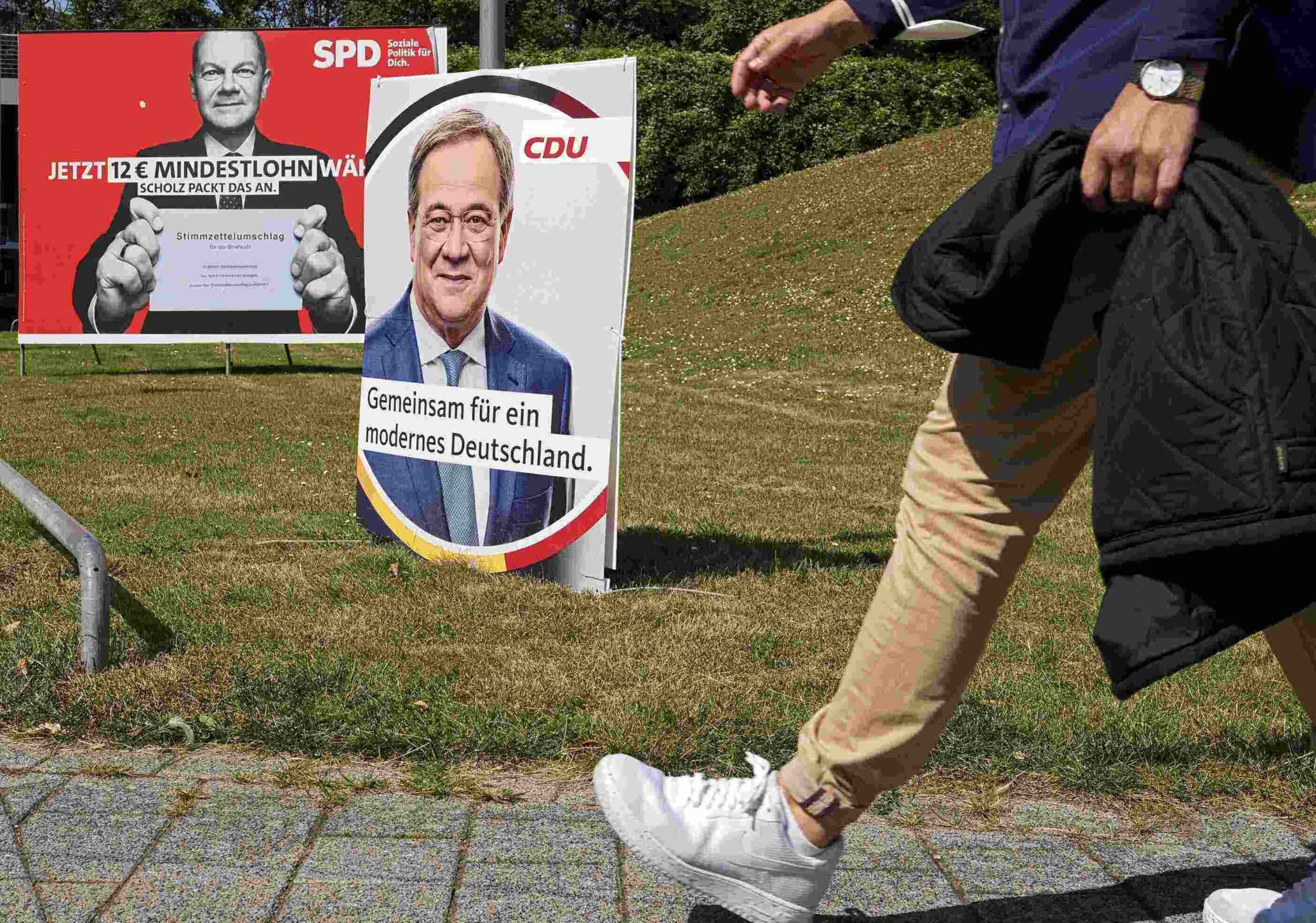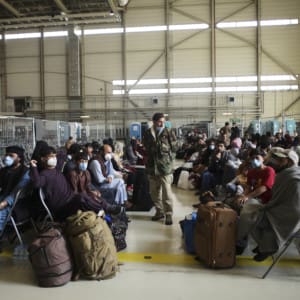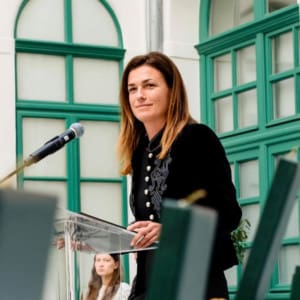Never in the history of Germany has the position of the Christian Democratic Union (CDU) been so precarious in the election polls, emphasizes historian and sociologist Reiner Zitelmann. In a comment to the National Interest portal, he pointed to April last year when the party of the current chancellor, Angela Merkel, led with 38 percent of support. However, currently, the CDU is polling between only 21 and 24 percent.
The author cites the CDU’s weak candidate for chancellor, Armin Laschet, as one of the reasons for the declining support of the party. Laschet, as prime minister of the most populous federal state of Rhineland-Westphalia, has not yet been able to inspire his party or the wider electorate.
“Above all, however, it seems that the left-of-center Social Democratic Party (SPD) is succeeding in deceiving voters to an extent that is also unparalleled in the history of the Federal Republic,” the historian writes. He points out that the Social Democrats have strengthened by 10 percent in recent polls, mainly thanks to their leader Olaf Scholz, who is generally considered a relatively moderate politician.
But Scholz has never been very popular in the party, the expert points out. On the contrary, he believes that the SPD has moved more and more to the left in recent years, as evidenced by the fact that its candidates are Saskia Esken, Norbert Walter-Borjans, and Kevin Kühnert, who represent the left similarly to left-wing radical Alexandria Ocasio-Cortez among Democrats in the United States.
In the party primaries, the SPD’s membership base clearly favored these strongly left-wing candidates over Scholz, Zitelmann says. According to him, the reason why the party ultimately chose the moderate Scholz as the electoral leader is the same as the reasoning why U.S. Democrats chose Joe Biden as their presidential candidate.
“They hope to use Olaf Scholz to mobilize moderate voters who are not as far to the left as the party’s traditional base,” explains the historian.
Current surveys suggest the formation of the governing coalition of the SPD, the Greens, and the left-wing Die Linke, the author of the commentary states. He also recalls that a few years ago, the SPD refused to cooperate with Die Linke at the federal level because the party was too radical.
The historian considers Die Linke to be the newest successor to the former Socialist Unity Party of Germany (SED), the ruling party in East Germany, which has been renamed several times since the reunification of the country. Die Linke promotes widespread nationalization, progressive taxation of up to 75 percent, and withdrawal from NATO, outlines Zitelmann. He adds that just a few months ago, the new party leader, Janine Wissler, was a member of a radical Trotskyist group.
Breakthrough elections
The basic agenda of the left-wing Greens is the protection of the environment and the fight against climate change, which is supported by a large part of the German media, including the state television networks, with a large segment of journalists not hiding their sympathy for the party. He points out that a coalition of the SPD, the Greens, and Die Linke already rule in Berlin, and the latter party has spoken out in favor of a campaign to expropriate real estate property from those companies that own over 3,000 rental apartments in the city.
Green leaders Robert Habeck and Annalena Baerbock also admit such a possibility, albeit as a “last resort”, Zitelmann notes. He adds, however, that all three parties support the renewal of the property tax, which was abolished in Germany in 1997.
“The SPD and Greens are now pursuing a policy that can only be described as voter deception,” the commentator warns, noting that representatives of both parties are questioned daily whether they would form a federal government with Die Linke, and although they do not rule out such a possibility, they carefully oppose admitting that this is, in fact, one of their goals, knowing it would cost them thousands, if not millions of votes.
The historian believes that the three-member coalition would radically change Germany. All of these parties are pushing for cuts in German defense spending, even though, within NATO, it is among the lowest in terms of GDP and would speed up the country’s transition from a market to a regulated economy, which Angela Merkel has already begun. Zitelmann fears that experience with the SPD, the Greens, and Die Linke governments in Berlin suggests that Germany would face repeated violations of the constitution.
In Berlin, for example, landlords were forced by law to adhere to a rent-cap law for existing contracts, which, according to the author of the commentary, more or less equaled the partial expropriation of property owners. The German Supreme Court ruled such a law unconstitutional, but the SPD and Die Linke make no secret their intention is to introduce a similar law at the federal level, Zitelmann criticizes.
Political freedom in the German capital is also under pressure, says the sociologist. He mentions, in particular, the right to demonstrate, as left-wing assemblies are commonly allowed as gatherings of opponents of government anti-coronavirus restrictions are banned or dispersed by the police.
“What is happening in Berlin provides a foretaste of how Germany as a whole will change if the SPD, Die Linke, and the Greens come to power,” Zitelmann writes.
He believes that the September elections in Germany may be a moment that will radically change the country’s political map for the coming years.
Title image: A election poster for the German Social Democrats, SPD, shows top candidate Olaf Scholz, left, behind a poster for top candidate for the German Christian Democrats, CDU, Armin Laschet, right, at a street in Duesseldorf, Germany, Wednesday, Aug. 25, 2021. (AP Photo/Martin Meissner)





